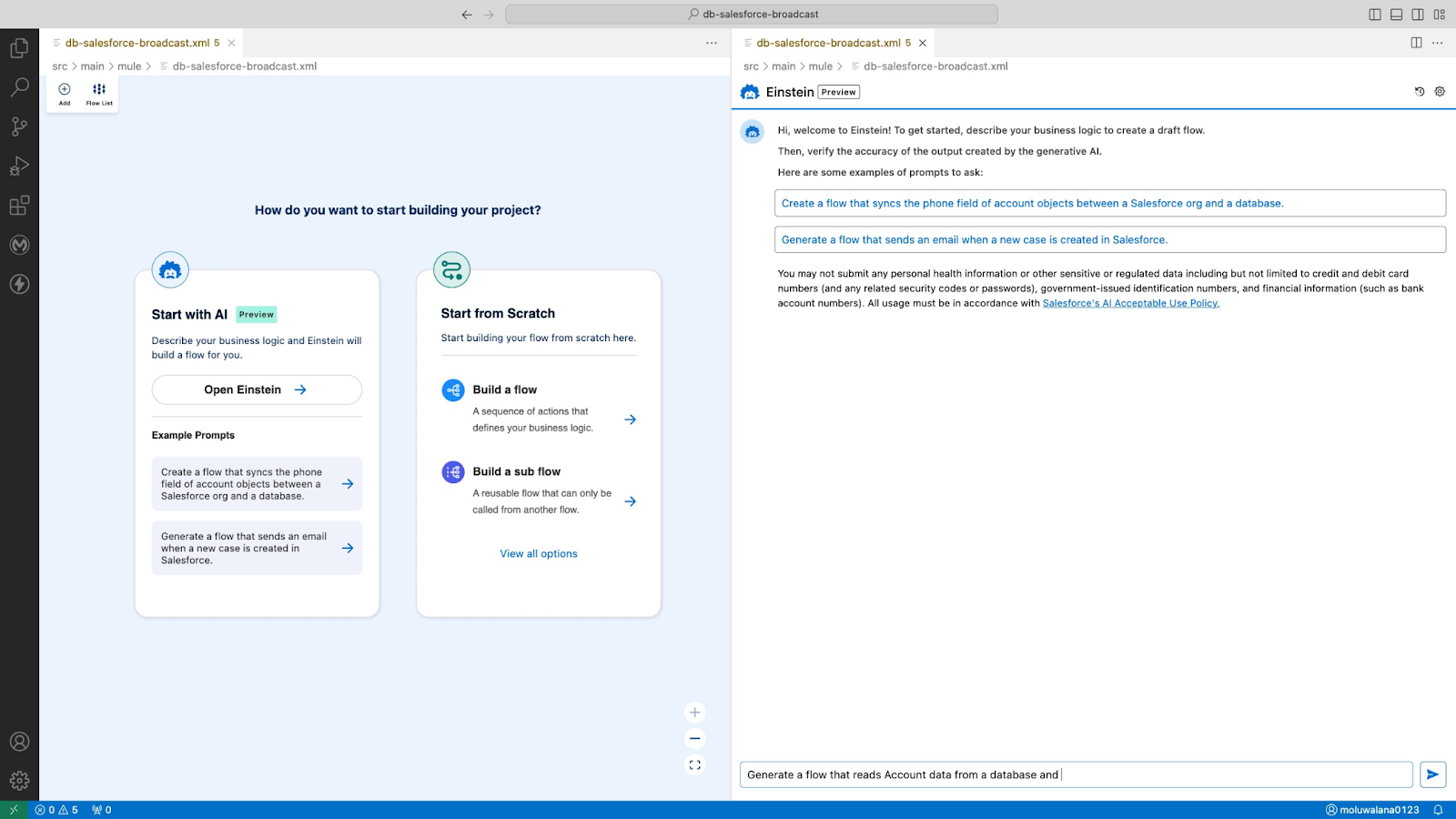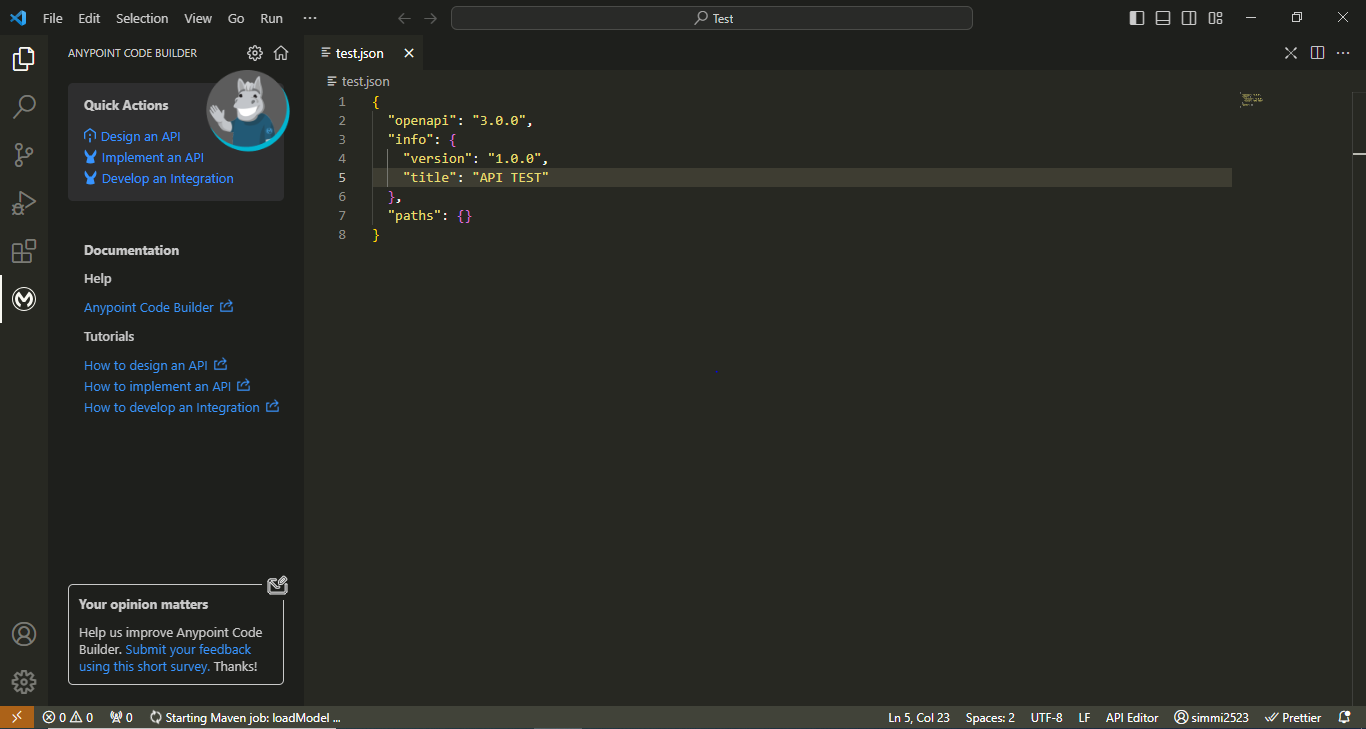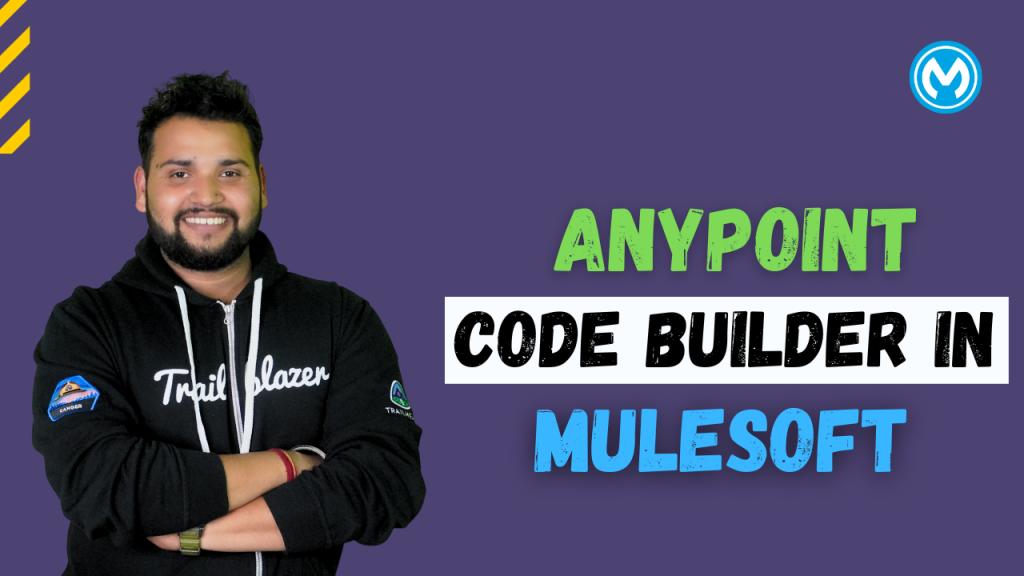Anypoint Code Builder serves as an integrated development environment (IDE) designed for developers to seamlessly integrate and construct APIs.
Historically, developers faced challenges when switching between different tools for API production Furthermore, They needed a single platform to design, create, and deploy everything in one location.
What is an Anypoint Code Builder?
MuleSoft offers an integration platform called Anypoint Platform; consequently, this platform includes Anypoint Code Builder. Furthermore, this platform connects different systems, data sources, and applications to enable smooth automation and data sharing.
Anypoint Code Builder, a specific aspect of the Anypoint Platform tailored for developers and integration experts, serves as an integrated development environment.
Developers and integration experts can use it to build, test, and deploy code or applications that combine various systems and services directly within VS code.
It leverages dependable generative APIs, which not only save costs but also expedite software development cycles for developers.
Want To Learn Salesforce Flows? Checkout our Salesforce Flow Course

Source: salesforce.com
Important Aspects Of Anypoint Code Builder
1. Integrated Development Environment (IDE)
An IDE that is web-based and easy to use that allows developers to write, edit, and manage code for creating APIs and integrations.

2. Automation with CI/CD
The testing and deployment of integration code are automated by Anypoint Code Builder’s integration with CI/CD pipelines. While preserving consistency across several environments, this connection expedites the delivery of dependable and scalable integration solutions, guarantees code quality and streamlines development processes.
It guarantees that integration projects are ready for production use and are in line with contemporary best practices for software development.
Also read – Salesforce Optimizer Extension
3. Connector Library
To facilitate connections with other systems, services, and APIs, the “Connector Library” is an invaluable resource that offers pre-built connectors and templates.
Furthermore, these connectors provide ready-made building pieces for connecting, exchanging data and interacting with a variety of applications and data sources, which streamlines the integration development process.
Consequently, this feature speeds up development and ensures compatibility with many platforms and technologies by greatly reducing the need for developers to write bespoke code for each integration.
4. Documentation and Code Generation
Documentation and Code Generation in Anypoint Code Builder, furthermore, is a set of tools that automates the process of using and documenting APIs by creating client SDKs and documentation from integration code.
5. Collaboration Tools
The teamwork and real-time collaboration, facilitated by Anypoint Code Builder’s collaboration tools, significantly enhance the efficiency and efficacy of the development and management of integration projects.
6. Error Handling
It allows for customized error management and notification systems to handle and resolve potential issues that might arise during the execution of integrations, ensuring smoother and more reliable integration workflows.
7. Version Control and Collaboration
It supports Anypoint Git and other version control systems, fostering collaboration among development teams. Multiple team members can concurrently work on integration projects, efficiently recording and managing any modifications.
Availability
- Customers can now use Anypoint Code Builder for Desktop.
- Einstein for Anypoint Code Builder is currently in pilot.
- The general public release of Anypoint Code Builder (Cloud) is scheduled for the second quarter of 2024, it is presently in beta.
Conclusion
Anypoint Code Builder supports data-driven decision-making in networked systems. Moreover, it gives them the capacity to efficiently develop, test, and roll out integration solutions with a high level of dependability.
Additionally, it is essential to ensure that businesses remain adaptable, competitive, and well-connected as the business landscape changes. Consequently, you’ll be better able to traverse the complex web of current business integrations if you embrace this potent tool.
FAQs
1. What is RAML?
The “RESTful API Modeling Language,” or RAML, is a framework and language for creating and describing RESTful APIs. Additionally, it offers a succinct and straightforward approach to describing an API’s functions, structure, endpoints, and data models.
2. What is Anypoint Platform?
Anypoint Platform by MuleSoft is an integration solution for connecting enterprise applications, and data with a focus on API management and seamless integration.
3. What is the use of API gateways?
An API gateway is a central component in an API architecture that acts as a traffic cop, providing essential functions such as security, routing and transformation for API requests, ensuring efficient, secure, and well-managed communication between clients and backend services.







